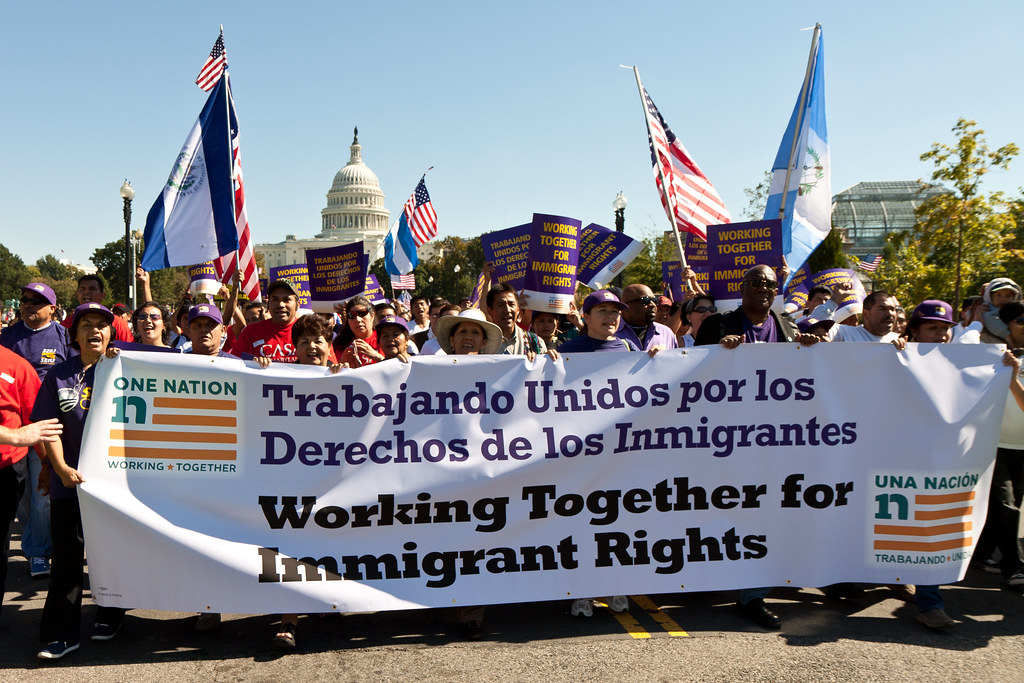The Guatemalan Immigration Crisis
August 19, 2019 | Expert Insights

Background
Since October 2018, over 200,000 Guatemalans have fled their country, in an attempt to escape the repercussions of climate change that has ruined crops in a largely agrarian country already plagued with gang violence, a broken legal system and ruthless drug cartels.
Alejandro Giammattei’s election campaign hinged on the promises of accelerating economic growth by increasing security, fighting for conservative social values and targeting heavy corruption. Incidentally, this was Giammattei’s fourth attempt at the presidency, each time as the leader of a different party. This time around, he championed the cause of the right-wing Vamos party against former first lady Sandra Torres.
The election saw the lowest turnout the country has witnessed since 1966; only 43% of registered voters cast their ballot and of these, 57% per cent voted for Giammattei. He won mainly due to his opposition to the ‘safe asylum’ deal signed by predecessor Jimmy Morales in July 2019. The deal will come into effect in August- unless Giammattei is able to re-negotiate the same.
Morales was pressured into signing the deal when Trump threatened heavy economic sanctions against Guatemala, which is already facing an economic meltdown. Guatemala relies heavily on the millions of dollars that it receives from the United States as remittances.
Guatemala is the first country that migrants from Honduras, Belize and El Salvador need to cross before entering Mexico to reach the U.S. border. The deal makes it mandatory for migrants from neighbouring countries to apply first for asylum in Guatemala before heading to the U.S.
Analysis
Trump has made immigration the highest priority of his administration. He aims to stop migrants long before they reach the US border. The ‘safe asylum deal’ with Guatemala would block Salvadorians, Hondurans and Belizeans from reaching the US in the first place.
Mexico has been pressurised unsuccessfully to sign the same deal which has resulted in increased security along the US -Mexico border. Mexico nonetheless has increased enforcement along the border it shares with Guatemala to appease the US. The threat of economic sanctions from the US makes it important for the countries to comply, but in reality, these agreements do nothing to alter the ground reality.
U.S. Customs and Border Protection has reported that close to 250,00 Guatemalans have been apprehended at the US border, numbers that are larger than from any other nationality. Guatemala’s hill region of Huehuetenango leads in numbers with almost 3% of the population has already fled to the US border since 2018.
Implications of the safe asylum deal are far-reaching. Migrants from neighbouring nations travelling to the US must first apply for asylum in Guatemala before they can apply for asylum in the US. This will essentially double the population and increase the burden on Guatemala.
Guatemala has one of the highest crime rates in the world and the US has issued travel advisories to Americans to avoid holidaying there.
Guatemalans have lost their faith in the administrative system and have made it clear that no matter who comes to power, they want to leave. But they have to pay smugglers, who are often members of cartels or gangs, heavy prices (minimum $ 7,000 per head).
If Giammattei fails to deliver on his promise, Guatemala stands at the risk of becoming a migrant detainment hub.
Assessment
- Guatemala is at risk to be the first domino whose collapse would affect the region if this deal is implemented. Mexico, Honduras, El Salvador and Belize are already being pressured by the US to enter a similar agreement. They will find it almost impossible to resist US pressure which will come stronger now, due to the impending US elections.
- The hastily signed agreement has already been opposed by the Constitutional Court of Guatemala because the Congress has to decide on safe third country agreements.
- Guatemala’s elite holds significant dominion in the power echelons of the country. Trump has threatened to impose massive tariffs if Guatemala backs out of the deal. The elite will be more inclined to have the deal successfully implemented.
- Giammattei’s popularity will take a definite hit if the US sets up trade barriers. The US buys almost 40% of Guatemalan exports and the Guatemalan economy will not be able to afford any change in the status quo.
- The US is likely to consider a common proposal by the five nations as it has been trying to pursue a common safe asylum deal.
- It seems like President Trump has not fully comprehended the human and moral quotient of the situation. Migrants are usually desperate and will not stop fleeing to the border. It will further debilitate the economic growth of Latin American countries and increase the risks that migrants will inevitably take in order to reach their destination, and also limit their legal choices.
- The addendums to the deal have been kept secret but it is safe to assume that clauses which force Guatemala to accept all asylum requests one way or the other will be present. Hence, apart from dealing with US pressure, Giammattei needs to focus on making ground-level changes in the country as the propensity to re-negotiate this deal remains bleak.
Image Courtesy: flickr.com








Comments